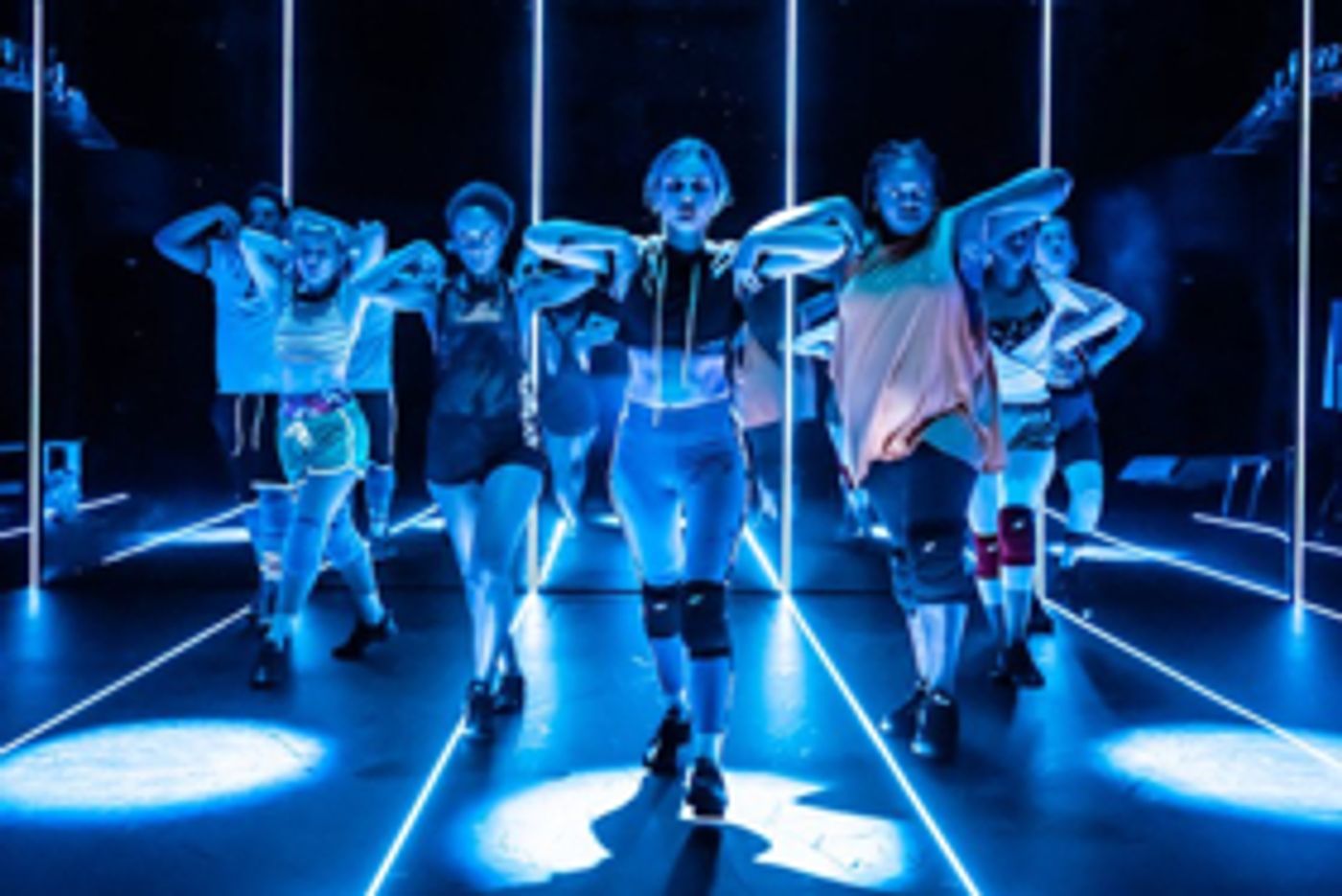Review: DANCE NATION, Almeida Theatre

![]() Wild, raw, hilarious and tender, Clare Barron's electrifying play - first seen in New York earlier this year - is a candid portrait of prepubescent girls, rare compared with the myriad male coming-of-age tales. But, like its warrior women, Barron's piece fights for its space, and with a formal daring that teeters thrillingly on the edge of chaos.
Wild, raw, hilarious and tender, Clare Barron's electrifying play - first seen in New York earlier this year - is a candid portrait of prepubescent girls, rare compared with the myriad male coming-of-age tales. But, like its warrior women, Barron's piece fights for its space, and with a formal daring that teeters thrillingly on the edge of chaos.
We're in small-town Ohio, following a preteen dance team on their road to the national championships. Barron teases genre tropes, referencing A Chorus Line (a voice-of-god director, "I hope I get it"); reality TV drama via coach Pat, fond of a dramatic pause and a surprise twist; and the fraught familial intervention of Dance Moms.
There's also a hint of Strictly Ballroom in the self-seriousness of Pat's mission, talking of such events as the Boogie Down Grand Prix with reverence, and coming out with grandiose statements like "I am making the future" while outlining his acro-lyrical tribute to Gandhi (Brendan Cowell is fantastic as the histrionic autocrat).
It's deliciously funny, yet Barron takes seriously the girls' investment in dance, and how it relates to their burgeoning identities. There's an absolute belief in their ability to change the world, all the more precious for its fragility - soon to be snuffed out by an uncaring society.
"What am I going to do with all this power?" wonders Ashlee (Kayla Meikle delivering a tour-de-force, roof-raising monologue), as she recounts with pride her beauty, brains, sexuality, confidence. And yet she already knows that she can't speak these thoughts aloud, that to be female means to be defined by others, not - rightfully - worshipped by them.
Barron has called this a 'ghost play', and there's a wonderful effect in the all-ages casting: simultaneously the young hopefuls, and a glimpse of their older selves. Ashlee will never again feel this power; she and another girl, in fact, will later bond over the trauma of depression.
This intimate, beautifully drawn portrait makes you feel fiercely protective of these girls at this crucial stage - like dippy Maeve, endearingly played by Nancy Crane, who casually cites cosmic forces and her amazing abilities. "One day," she muses, "I will forget I ever had the power to fly."
Barron thoughtfully juxtaposes childhood and adult experiences, as in an evocative speech about being driven at night by Irfan Shamji's gentle Luke, or in a telling triptych: one girl playing with toy horses, another having her first period, and a third experimenting with masturbation. There's a longing to escape, for life to start, alongside an understandable fear of change.
But, refreshingly, there's little shame. It's a matter-of-fact representation of female physicality, like the spot-on changing room chats - innocent curiosity about everything from sexual fantasy to circumcision, with Sarah Hadland's vividly assertive Sofia that girl who somehow knows about everything first.
Fear is channelled into power, like menstrual blood becoming war paint, or - in one of several striking imaginative sequences - the girls devouring their male mentor and tearing apart the dance studio. The word "pussy" is gloriously reclaimed (Donald who?), and there's a memorably violent pep talk ahead of portraying, er, Gandhi.
Barron also nails self-deprecating female conversation, and the painful intimacy of bonding with and measuring yourself against others. Ria Zmitrowicz is wonderfully open as Zuzu, the girl who's always second best, and who turns that judgement inward. She communicates in an anxious rush of words, unable to put any experience into perspective.
Karla Crome is fascinating as her more talented friend Amina: a lithe, supple dancer with fierce intent, and yet who is afraid of owning her talent and will to win. Already, she feels a gendered judgement for that, and - with wolves a recurring image - knows it's behaviour that would get her expelled from the pack.
Aline David's movement is constantly surprising, evolving from smiley tap to brooding sensuality and mystical contemporary. It clearly stems from the bodies of these actors, and - if less slick and trick-filled than real competition groups - illustrates brilliantly the push and pull between individual expression and group harmony.
Samal Blak's design, too, is cleverly expressive. Trophies line the walls - the past that they must live up to - and the mirrors revolve to deliver sudden striking images, like a panicked Zuzu trapped in the loo, tearing into her flesh. Throughout, Bijan Sheibani's production is well-balanced: sequins and sweat, glamour and grotesque, real life and unlimited wonder.
Both a battle cry and a wake for female power, and excitingly adventurous theatre.
Dance Nation at Almeida Theatre until 6 October
Photo credit: Marc Brenner
Reader Reviews
Videos

